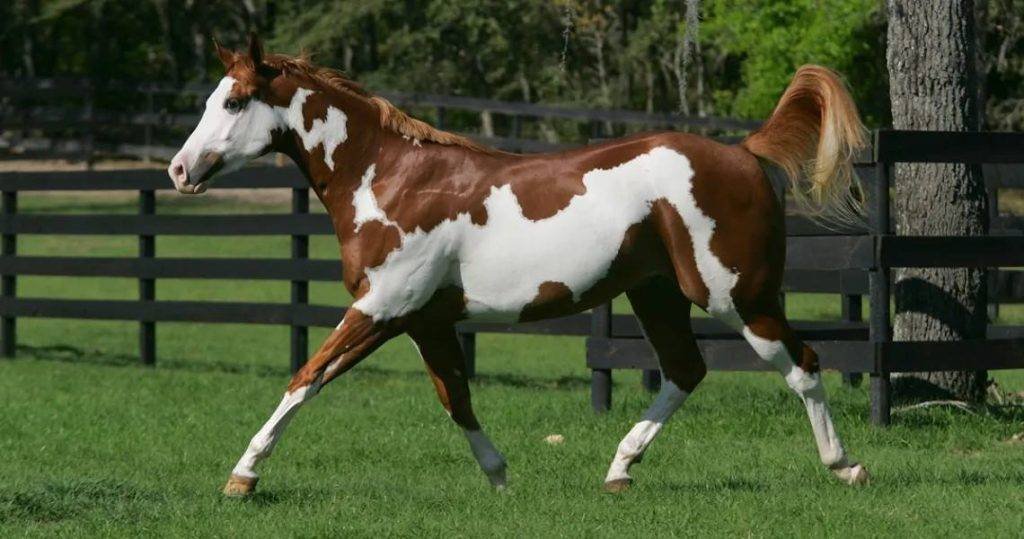Understanding Popular Horse Breeds and Their Unique Care Needs
Every horse breed comes with its own set of characteristics, temperaments, and care requirements. Whether you’re a seasoned equestrian or a new horse owner, understanding the specific needs of different horse breeds is key to providing optimal care and ensuring a positive relationship with your equine companion.
From the majestic draft horses to the agile and speedy thoroughbreds, every breed has unique traits that impact everything from feeding and grooming to exercise and training. If you’re considering adding a horse to your stable, or you’re simply looking to learn more about the horses you care for, here’s an overview of some of the most popular horse breeds and what you need to know to keep them happy and healthy.
1. Arabian Horse: The Enduring Beauty of the Desert
Known for their stamina, intelligence, and striking appearance, Arabians are one of the oldest horse breeds in the world. Their heritage traces back to the deserts of the Middle East, and they are often used for endurance racing.
- Care Needs:
- Exercise: Arabians are built for long distances and endurance, so they require regular exercise, especially if they’re used for riding or endurance sports.
- Diet: While they can tolerate varying conditions, Arabians benefit from a high-fiber diet to maintain their energy levels.
- Grooming: Their short coats and fine skin mean they need less grooming than some other breeds, but regular care is essential to maintain their sleek, shiny coats.
- Temperament: Arabians are known for being intelligent and spirited, so consistent, positive reinforcement training works best.
2. Thoroughbred: The Speed Demons of the Racing World
Thoroughbreds are famous for their speed, agility, and athleticism, making them the stars of horse racing. However, their versatility also extends to jumping, dressage, and eventing.
- Care Needs:
- Exercise: These horses need plenty of exercise to stay healthy and happy. Whether it’s daily workouts or regular turnout, keeping them physically active is crucial.
- Diet: Due to their fast metabolism, Thoroughbreds need a diet that’s rich in nutrients, including high-quality forage and grain, to maintain their energy levels.
- Grooming: With their short coats, Thoroughbreds are relatively low-maintenance when it comes to grooming, but regular brushing helps prevent coat dullness and keeps them comfortable.
- Temperament: Thoroughbreds can be high-strung and sensitive, so they often do best in environments with experienced handlers who provide clear and consistent training.
3. Clydesdale: The Majestic Draft Horse
Clydesdales are one of the most well-known draft horse breeds, thanks to their large size, strength, and historical association with workhorses. These horses are often used in farming, logging, and pulling heavy loads.
- Care Needs:
- Exercise: Despite their large size, Clydesdales are active and require regular exercise to stay fit and healthy. Daily turnout and moderate exercise are important for maintaining their muscular build.
- Diet: They need a nutrient-rich diet, which includes high-quality hay, grains, and sometimes supplements to maintain their massive size and muscle mass.
- Grooming: Their thick, long coats, especially around their legs (called “feathering”), require regular grooming to prevent tangles and to ensure skin health. They may need more frequent hoof care due to their weight.
- Temperament: Clydesdales are known for their calm demeanor and are often very people-friendly. However, due to their size, they need proper training and handling from knowledgeable owners.
4. Quarter Horse: The All-Around Athlete
The American Quarter Horse is one of the most popular and versatile breeds, known for their speed in short distances and their excellent ability to perform in a variety of disciplines, including cutting, western riding, and rodeo events.
- Care Needs:
- Exercise: While they may not require the endurance training of a Thoroughbred, Quarter Horses still need regular physical activity to keep them fit and focused. This includes plenty of riding, lungeing, or turnout.
- Diet: A balanced diet with good-quality forage is essential to keep them healthy and energetic. Quarter Horses are generally hardy and can adapt to different feeding regimens depending on their workload.
- Grooming: Their short coats are easy to care for, but regular grooming helps with circulation and coat health. Brushing also prevents dirt from accumulating, especially if they’re being worked hard.
- Temperament: Quarter Horses tend to be easy-going and highly trainable, making them an excellent choice for both beginners and experienced riders.
5. Tennessee Walking Horse: The Smooth-Gaited Companion
Known for their smooth, unique gait called the “running walk,” Tennessee Walking Horses are widely admired for their comfort and ease of movement. They’re often used for trail riding and pleasure riding.
- Care Needs:
- Exercise: Tennessee Walkers benefit from regular exercise to maintain their fitness. They thrive on trails and long rides, especially with slow to moderate paces.
- Diet: A regular diet of hay, pasture, and grains is typically sufficient, although they may need additional supplements to support their joints due to their gait.
- Grooming: These horses have a smooth coat that’s easy to maintain, but regular grooming helps keep their coats shiny and healthy, especially if they’re active.
- Temperament: Tennessee Walkers are known for their calm and friendly nature, making them an excellent choice for riders who want a more laid-back companion. They can be an ideal breed for beginner or intermediate riders due to their gentle nature.
6. Mustang: The Wild Spirit of the West
Mustangs are known for their wild heritage and adaptability. These horses were originally brought to North America by Spanish settlers, and they’ve become a symbol of the American West. Mustangs are tough, independent, and hardy animals.
- Care Needs:
- Exercise: Mustangs are naturally fit and hardy, so they don’t require as much exercise as other breeds. They are well-suited for free-range grazing and moderate work.
- Diet: As tough grazers, Mustangs are excellent at finding forage in harsh environments. They can maintain their health on a simple diet of grass and hay.
- Grooming: Mustangs have a dense coat that may require seasonal grooming, but they’re relatively low-maintenance compared to other breeds.
- Temperament: Mustangs are known for their strong, independent nature and may require experienced handlers who can provide firm, patient training. They can be both bold and sensitive.
7. Welsh Pony: The Small but Mighty Friend
Welsh Ponies are a small breed with big personalities. They are highly regarded for their intelligence, stamina, and versatility, excelling in both riding and driving competitions. Their size makes them perfect for children and small adults.
- Care Needs:
- Exercise: Welsh Ponies are energetic and love regular exercise. They enjoy being ridden or driven, and regular turnout is important for keeping them mentally and physically fit.
- Diet: They can easily become overweight, so it’s important to manage their diet carefully, ensuring they don’t get too much grain or rich forage.
- Grooming: Their coat is easy to care for, but regular grooming is essential to keep them looking their best, particularly if they’re active in competitions.
- Temperament: Welsh Ponies are known for their spirited nature, intelligence, and willingness to please, making them excellent choices for young riders or those new to the equestrian world.
Choosing the Right Breed for Your Lifestyle
Understanding the care needs of various horse breeds is essential for ensuring that your horse stays healthy, happy, and well-adjusted. Every breed has unique traits and requirements, so it’s important to choose a horse that matches your lifestyle, experience level, and goals. Whether you’re looking for a racing partner, a reliable workhorse, or a gentle trail companion, there’s a breed out there that’s perfect for you.




